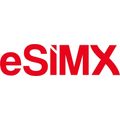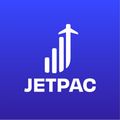Keepgo a toujours répondu aux besoins des utilisateurs fréquents de données mondiales. Ainsi, la période de validité minimale pour toute donnée achetée auprès de Keepgo est de 365 jours. En effet, les données de nos forfaits eSIM sont valables à vie, tant qu'elles sont rechargées une fois tous les 365 jours. La couverture actuelle est de plus de 100 pays, travaillant à se développer davantage.

Keepgo a toujours répondu aux besoins des utilisateurs fréquents de données mondiales. Ainsi, la période de validité minimale pour toute donnée achetée auprès de Keepgo est de 365 jours. En effet, les données de nos forfaits eSIM sont valables à vie, tant qu'elles sont rechargées une fois tous les 365 jours. La couverture actuelle est de plus de 100 pays, travaillant à se développer davantage.
Données Gratuite
Forfaits de données eSIM Keepgo pour la Chine
Questions fréquemment posées
Keepgo propose-t-il une eSIM à données illimitées pour la Chine?
Keepgo ne vend pas d’eSIM de données véritablement illimitée pour la Chine. Tous ses forfaits China offrent une allocation fixe de données de 50 GB avec une période de validité illimitée. Les voyageurs peuvent choisir parmi différents forfaits, par exemple le plan Norm pour 140, 00 USD, le plan Tucana pour 155, 00 USD ou le plan Chamaeleon Asia‑Pacific pour 210, 00 USD. Choisir un forfait à données fixes peut être plus rentable pour la plupart des utilisateurs, sauf si un consommateur de données très intensif en a besoin au-delà de 50 GB.
Keepgo propose-t-il un eSIM China avec numéro de téléphone et SMS ?
Keepgo ne propose pas de plan eSIM pour la Chine incluant un numéro de téléphone ou la possibilité d’envoyer des SMS. Les plans disponibles sont uniquement data, et ils ne prennent pas en charge les appels vocaux ou les messages texte entrants ou sortants sur le réseau local. Les voyageurs peuvent néanmoins communiquer en utilisant des applications VoIP basées sur les données telles que WhatsApp, Telegram ou iMessage, qui fonctionnent via la connexion Internet fournie par le plan de données.
Combien de forfaits de données Keepgo propose-t-il pour la Chine ?
Keepgo propose 39 forfaits de données multi‑pays couvrant la Chine ; il n’existe aucune option par pays pour ce pays. Les forfaits varient en plafond de données entre 100 Mo et 50 Go et peuvent être valides d’un seul jour jusqu’à aucune expiration. Les prix de ces forfaits varient de gratuit à environ 400 USD, et beaucoup autorisent le tethering mais ne sont disponibles que pour les nouveaux utilisateurs.
Résumé avec Gen AI. Dernière mise à jour:




